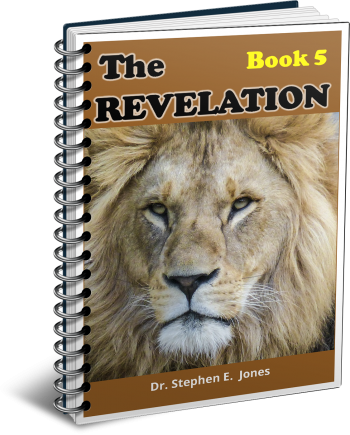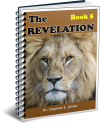Latest Posts
View the latest posts in an easy-to-read list format, with filtering options.

A study of Revelation 13-15. This is book 5 of an 8 part book series.
Category - Bible Commentaries

Revelation 15:1 says,
1 And I saw another sign in heaven, great and marvelous, seven angels who had the seven plagues, which are the last, because in them the wrath of God is finished.
John did not just receive a revelatory word about this. He “saw another sign in heaven.” This sign indicates that there is a sign in the heavens which consists of seven angels in the stars. This correlates with Rev. 1:20, which says, “the seven stars are the angels of the seven churches.” So John saw the angels of the seven churches come with bowls containing the seven last plagues upon Babylon.
The seven stars in heaven are the Pleiades, whose brightest star is Al Debaran, "the Leader, or Governor." Another bright star is Al Cyone, "The Center," whose Hebrew name is Succoth, "Tabernacles."
Those seven plagues are pictured as bowls of wine in Revelation 16. We will soon correlate these more closely when we study that chapter. However, knowing this connection helps us understand chapter 15, because it puts this chapter into the context of the seven churches and the overcomers who are called out of each church.
Revelation 15:2 says,
2 And I saw, as it were, a sea of glass mixed with fire, and those who had come off victorious [nikao] from the beast and from his image and from the number of his name, standing on the sea of glass, holding harps of God.
The Greek word nikao, here translated “had come off victorious,” is the same word used of the overcomers in the message to the seven churches. This, then, is the body of overcomers who stand on the “sea of glass mixed with fire.” Collectively, they have a job to do at the end of the age in bringing the seven final “plagues” upon Mystery Babylon.
Yet they also bring a positive message, showing that the overthrow of Babylon is not an end in itself, but the means of saving all the nations and incorporating them into the Stone Kingdom which “filled the whole earth,” as Dan. 2:35 tells us. In other words, it is man’s oppressive system of law and government that is overthrown and replaced by the law of God and the rule of the overcomers under Jesus Christ, the King. When this happens, the psalmist tells us, the nations will “be glad and sing for joy, for Thou wilt judge the peoples with uprightness, and guide the nations on the earth” (Psalm 67:4).
Revelation 15:3, 4 continues,
3 And they sang the song of Moses the bond-servant of God and the song of the Lamb, saying, “Great and marvelous are Thy works, O Lord God, the Almighty, Righteous and true are Thy ways, Thou King of the nations. 4 Who will not fear, O Lord, and glorify Thy name? For Thou alone art holy; for all the nations will come and worship before Thee, for Thy righteous acts have been revealed.”
Do the overcomers sing two songs? Is the song of Moses different from the song of the Lamb? Or are we to understand that this is one song entitled: The Song of Moses and the Song of the Lamb? To know this, we must go back to Deuteronomy and study the song of Moses.
On the day that Moses commissioned Joshua to lead Israel in his place, Moses wrote a prophetic song. Deut. 31:22, 23 says,
22 So Moses wrote this song the same day, and taught it to the sons of Israel. 23 Then he commissioned Joshua the son of Nun, and said, “Be strong and courageous, for you shall bring the sons of Israel into the land which I swore to them, and I will be with you.”
Since Joshua (or Yeshua) was a type of Christ leading Israel into the Promised Land, this song was not about Moses, but about Joshua and His calling. By extension, it is also about Jesus, the Yeshua of the New Testament. And yet, because Joshua was of Ephraim, while Jesus was of Judah in His first appearance, this song really applies to the present time, because it is only in His second appearance that He comes as Ephraim (or Joseph) to lead us into the Promised Land.
In His second appearance, He comes as a New Creation Man, where He is the Head, and the overcomers are His body. Hence, the “song of the Lamb” is the song of the arnion, the term Jesus used when He told Peter, “tend my lambs” (John 21:15). The arnion is the completed Christ body, where neither functions without the other. It is distinct from Jesus by Himself, who is called the Lamb (amnos) in John 1:29, 36, Acts 8:32, and in 1 Peter 1:19.
We may conclude, then, that the body of overcomers who come forth in Revelation 15 participate in the second work of Christ, serving under their Head—Jesus Christ. Even as Joshua was commissioned to overthrow the Canaanite nations with the help of the body of Israelites, so does Jesus overthrow Babylon with the help of the overcomers in Revelation 15. Perhaps the main difference is that Joshua conquered Canaan by an Old Covenant sword, while the overcomers conquer Babylon by the greater sword of the New Covenant.
Likewise, the song of Moses laments Israel’s corruption in his day, for after commissioning Joshua, we read in Deut. 31:24-27,
24 And it came about, when Moses finished writing the words of this law in a book until they were complete, 25 that Moses commanded the Levites who carried the ark of the covenant of the Lord, saying, 26 “Take this book of the law and place it beside the ark of the covenant of the Lord your God, that it remain there as a witness against you. 27 For I know your rebellion and your stubbornness, behold, while I am still alive with you today, you have been rebellious against the Lord; how much more, then, after my death?
In other words, the song of Moses—and, by extension, the entire law of God—was to stand as a witness against the nation on account of its rebellious heart. Within the song itself, Moses writes in Deut. 32:5, “They have acted corruptly toward Him…”[and] “are a perverse and crooked generation.” Moses prophesies also that Israel would provoke God to jealousy (vs. 16-21). Yet in the end, Moses concluded his song with a brief glimpse of the end of the story. Deut. 32:43 says,
43 Rejoice, O nations, with His people; for He will avenge the blood of His servants, and will render vengeance on His adversaries, and will atone for His land and His people.
In other words, the realistic pessimism of Moses would end with rejoicing, not only in Israel, but in all the nations. The reason for this is hinted in the song itself, where Moses speaks of the faithfulness of God (Deut. 32:4). This is clarified by the New Covenant, where God vows to change the rebellious hearts of men so that He may be their God, and they may be His people. The song of the Lamb, then, may be seen as an addendum or a second song that expands upon the faithfulness of God and His ability to save all nations, even through much judgment.
This song proved to be Moses’ last word to Israel, for we read in Deut. 32:48-50,
48 And the Lord spoke to Moses that very same day, saying, 49 Go up to this mountain of Abarim, Mount Nebo, which is in the land of Moab opposite Jericho, and look at the land of Canaan, which I am giving to the sons of Israel for a possession. 50 Then die on the mountain where you ascend, and be gathered to your people, as Aaron your brother died on Mount Hor and was gathered to his people.
For a more complete study of the song of Moses, see Deuteronomy, the Second Law, Book 10, Final Prophecies.
Perhaps the “song” in Rev. 15:3, 4 is meant to be seen as a short addendum to the song of Moses. It shows the triumph of the New Covenant and how “all the nations will come and worship before Thee” on account of His “righteous acts.” Those acts of God take the form of judgment upon the nations (“Babylon”). In particular, these judgments reach a climax with the seven last plagues, brought into the earth by the angels of the seven churches.
The main message of this song is to show that the judgments being poured out upon Babylon will have a happy outcome, not only for the few but for the many. All nations will glorify His name and worship Him for His “great and marvelous” works. The outcome will not be as it was with the land of Canaan, which Israel conquered by the sword of the Old Covenant. Under the Old Covenant, the law has no recourse but to bring death and destruction. But under the New Covenant, the law is satisfied by the blood of “the Lamb of God, who takes away the sin of the world” (John 1:29).
The overcomers are the only ones who knew (or understood) the words of the new song in Rev. 14:3, and this is probably the same as the song of the Lamb in Rev. 15:2, 3. The song is about the New Covenant and God’s ability to save all the nations in the Restoration of All Things.
Most Christians, not fully understanding the New Covenant by which they claim salvation for themselves, do not believe that God is truly able to save all mankind. They believe that man’s will is too strong, and that God is unable to turn the hearts of most men. They also believe that the death of a sinner is a deadline for salvation, and that even when every knee bows to Him at the Great White Throne, it is all for naught, for it is “too late” for them to be saved.
Such a song would be even more pessimistic than the song that Moses sang, for at least Moses knew that all nations would rejoice in the end, even if he did not fully understand how God would do this. But the overcomers pictured in Rev. 15:2 stand upon the “sea of glass” in a position of perfect rest. They hold “harps of God,” because they sing a heavenly song by divine revelation of truth that is unknown to most people on earth.